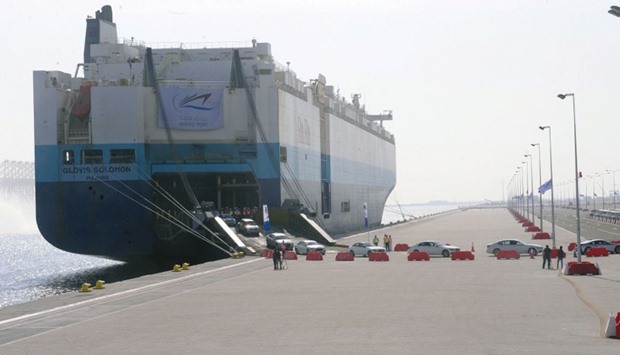Qatar’s 2016 budget is aimed at achieving equilibrium between revenue and expenditure to enhance the financial stability and economic growth in the country and the government is “visibly attentive” to developing the non-oil, especially the private sector, according to Global Investment House, a Kuwait-based economic think-tank.
“The budget validates the government’s keenness to continue to implement its sustainable development programme with focus on major projects in the health, education, and infrastructure sectors, along with projects related to the hosting of the FIFA World Cup 2022,” Global said in its latest research note.
The cost of the ongoing government projects is QR261bn, excluding private sector and energy sector projects. This includes projects worth QR87bn, QR54bn, QR4bn, QR30bn, QR17bn, and QR7bn in the transportation, infrastructure, sports, water and electricity, education and healthcare sectors, respectively.
Allocations for the health, education, and infrastructure sectors totalled QR91.9bn, representing 45.4% of the expenditure in the 2016 budget.
The anticipated revenue for fiscal 2016 is QR156bn compared to QR225.7bn in the previous fiscal year. The decline in revenue is due to a reduction in oil price assumption to $48 per barrel from $65 per barrel in the previous fiscal year. The breakeven oil price for Qatar was lowered due to a drop in oil and gas prices in the global energy markets, which are down by over 50% compared with the prices in 2014.
The projected expenditure is QR202.5bn in 2016 against QR218.4bn in the previous fiscal year. The projected budget deficit is QR46.5bn for 2016.
Qatar would finance the deficit by issuing debt instruments in the local and international financial markets, it said, adding furthermore, the country accumulated strong financial reserves at the Qatar Central Bank and made sizable investments through the Qatar Investment Authority during the period when oil and gas revenue was high.
“These reserves can be used in case of deficits. However, as of now, the government is keen to maintain these reserves,” Global said.
Qatar expects low hydrocarbon revenue to create a fiscal deficit of 4.8% of the GDP (gross domestic product) in 2016, compared to an estimated fiscal surplus of 1.7% of the GDP in 2015.
However, the country estimated that real GDP would increase to 4.3% in 2016 and fall to 3.9% in 2017, as gains from higher hydrocarbon production would be offset by a slowdown in construction spending as infrastructure spending would peak before the 2022 FIFA World Cup.
“The country anticipates that a sustained mismatch in crude oil supply and demand could require a larger adjustment in the government’s spending plans. This adjustment, along with the anticipated recovery in crude oil prices, would help reduce the fiscal deficit in 2017,” it added.

A ship unloads vehicles at Hamad Port. Qatar’s u201cbudget validates the government’s keenness to continue to implement its sustainable development programme with focus on major projects in the health, education, and infrastructure sectors, along with projects related to the hosting of the FIFA World Cup 2022,u201d says Global Investment House.
